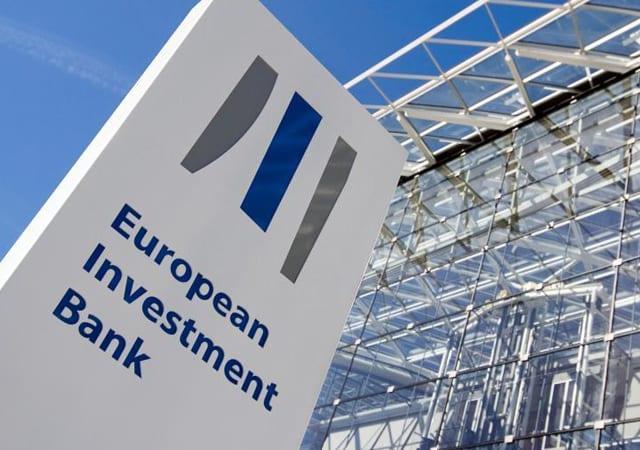The European Investment Bank today formally agreed to provide EUR 27 million of new long-term financing to support investment by entrepreneurs and businesses across Cameroon and strengthen economic resilience to the COVID-19 pandemic.
The streamlined business financing represents the largest ever EIB support for private sector investment in Cameroon and is part of the EIB’s increased engagement with financial partners across Africa to strengthen economic resilience to the pandemic.
The two new credit lines will be managed by leading local financial partners, EUR 15 million by CCA Bank and EUR 12 million by Commercial Bank of Cameroon.
Cameroonian businesses accessing the new financing will benefit from lower cost of financing thanks to European Union support as part of broader support to improve the competitiveness of Cameroon’s private sector.
The new partnership between the European Investment Bank, the world’s largest international public bank, CCA Bank and Commercial Bank-Cameroun, will increase access to long-term finance by businesses across Cameroon. The new financing builds on close cooperation in recent years to support private sector investment across Africa and best practice cooperation with leading financial partners in Cameroon.
The new business financing will support investment by manufacturing, agriculture, services and trading companies across the country.
The EIB’s latest cooperation to support business investment in Cameroon was formally announced in Yaoundé by Thomas Östros, European Investment Bank Vice President, Alexis Megudjou, CEO of CCA Bank and Léandre Djummo, CEO of Commercial Bank-Cameroun, in the presence of Louis Paul Motazé, Minister of Finance, Achille Bassilekin III, Minister of Small and Medium Enterprises, Alamine Ousmane Mey, Minister of Economy, Planning and Regional Development, and Philippe Van Damme, EU Ambassador.
“Increasing support for Cameroon’s productive private sector is a major focus of our national development strategy (SND30). From this point of view, the State has a duty to put in place an optimal, conducive and incentive framework for the development of entrepreneurship, particularly among the priority targets of young people and women. Agreement of new business financing credit lines totalling more than 17.7 billion FCFA, thanks to Cameroon’s Competitiveness Support Scheme, demonstrates a model for strengthening resilience for a sector severly impacted by COVID-19” said Alamine Ousmane Mey, Minister of Economy, Planning and Regional Integration.
“The new financing agreements confirmed today will help to strengthening the productive capacities of our SMEs, in particular in manufacturing and accelerate post-Covid recovery. This is essential to ensure that SME’s can access finance and lead our country’s structural economic transformation agenda”. said Achille Bassilekin III, Minister of Small and Medium Enterprises, Social Economy and Crafts. Enterprises.
“Companies across Cameroun have been impacted by the COVID-19 pandemic. Commercial Bank Cameroun is supporting private sector investment across our country and enabling our corporate, business, especially those in the processing sector to invest for the future and create economic opportunities. The European Investment Bank has previously agreed to support EUR 14 million of new long-term financing for entrepreneurs and businesses across Cameroun. Recently a new EUR 12 million business financing has been granted to Commercial bank Cameroon, for a total of EUR 26 million financing. The new EUR 12 million support provided by European Investment Bank and EU backing for Commercial Bank will unlock new private sector financing to be provided by our branches across the country for private businesses.” said Léandre Djummo, Director General of Commercial Bank.
“Increasing access to finance by entrepreneurs and businesses is essential to overcome economic challenges enhanced by COVID-19 and unlock business expansion. The EIB’s latest cooperation with leading financial partners here in Cameroon demonstrates how together EU and African partners are helping to beat COVID and ensure that private sector business can invest, create jobs and grow. As part of Team Europe, the European Investment Bank is pleased to provide EUR 15 million of new targeted financing to CCA Bank and EUR 12 million to Commercial Bank of Cameroon to unlock new private sector financing essential to strengthen private sector investment, create jobs and accelerate the post-pandemic recovery of Cameroon.” said Thomas Ostros, Vice President of the European Investment Bank.
“The European Union is committed to supporting the private sector in Africa. The Team Europe cooperation with the European Investment Bank will increase access to targeted business finance by companies across Cameroon. The new EUR 27 million financing scheme with CCA Bank and Commercial Bank of Cameroon will create jobs, unlock business growth and enable Cameroonian companies to seize new business opportunities in the years ahead.” said Ambassador Philippe Van Damme, Head of the European Union Delegation to Cameroun.
Supporting investment by businesses across Cameroon during challenging times
The two new 7 year EIB credit lines with CCA Bank and Commercial Bank of Cameroon will allow new financing to be provided to private businesses, notably SMEs, across Cameroon.
The new financing will allow longer average loan tenors for business loans and enable companies to better reflect the economic life of new investment.
Ensuring that Cameroon benefits from EIB response to strengthen economic resilience to COVID
The new cooperation represents the EIB’s first support for business investment with CCA Bank and the second with Commercial Bank of -Cameroun and the first private sector financing in Cameroon in two years.
The scheme is part of the EIB’s increased engagement across Africa to ensure that companies can continue to access finance when faced with unprecedented health, business and trade challenges linked to COVID-19, approved by European Union finance ministers in April 2020, within weeks of the impact of the pandemic being recognised.
The European Investment Bank is the world’s largest international public bank, owned directly by the 27 European Union member states.
Since the pandemic EIB has provided more than EUR 8 billion for private and public investment across Africa.


 Forex3 weeks ago
Forex3 weeks ago


 Naira2 weeks ago
Naira2 weeks ago
 Billionaire Watch2 weeks ago
Billionaire Watch2 weeks ago




 Naira2 weeks ago
Naira2 weeks ago




 Naira2 weeks ago
Naira2 weeks ago




 Naira1 week ago
Naira1 week ago




 Naira3 weeks ago
Naira3 weeks ago




 Naira4 weeks ago
Naira4 weeks ago





















